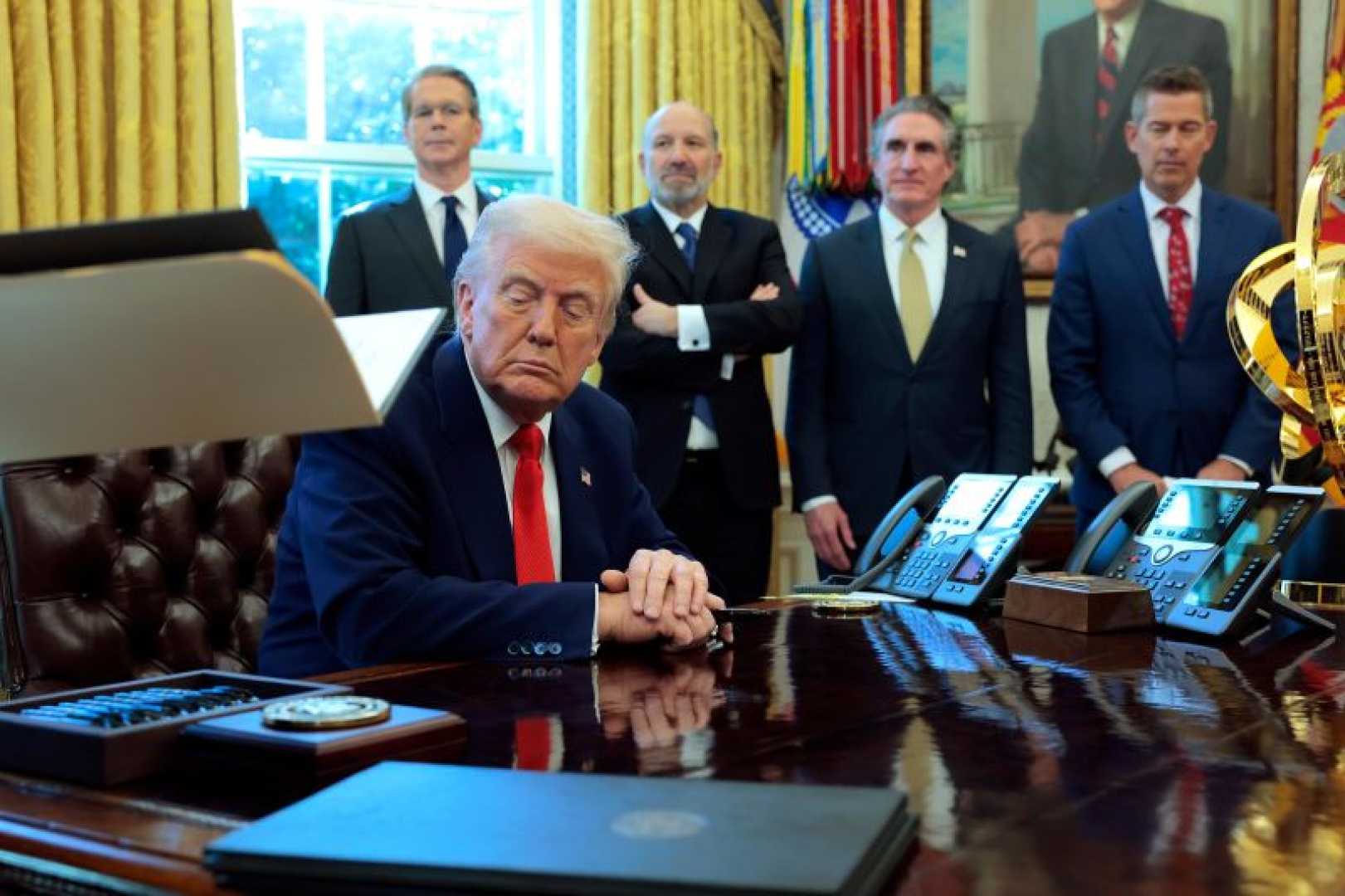Business
Trump’s Tariff Plans Create Uncertainty for Global Markets

WASHINGTON (AP) — As global investors nervously anticipated news from the Oval Office, President Donald Trump faced journalists on Monday afternoon, just before the stock market closed. The uncertainty surrounding his upcoming tariffs led to pressing questions regarding whether these measures were a strategic negotiation tool or a step toward lasting economic reform.
“It can both be true,” Trump stated, suggesting a dual approach of implementing permanent tariffs while simultaneously engaging in negotiations. This vagueness resulted in the stock market slipping closer to closing in the red, with the S&P 500 stock index recovering slightly to open up 3.4% on Tuesday, indicating mixed reactions among investors.
During a time when foreign leaders and business executives are seeking a clear direction, the Trump administration’s mixed signals complicated the situation. Despite efforts from advisors to ease market anxiety by framing tariffs as a foundation for negotiations, Trump remained steadfast in his belief that levies on foreign imports would yield substantial revenue.
Even as he promised tax cuts and a booming economy, the repercussions of his tariff agenda raised concerns about declining investor confidence. Republican Senator Thom Tillis of North Carolina urged the administration to clarify its stance on the tariffs, noting the widespread perception among stakeholders and the importance of having a discernible endgame.
Currently, the White House has not detailed the objectives for any trade discussions, suggesting that negotiations with trading partners may require significant changes to their tax systems. Countries, including Canada and members of the European Union, remain uncertain about how to proceed amid assertions from the administration that up to 70 nations are eager to start talks.
Trump has long criticized trade deficits, which occur when the U.S. imports more than it exports. In a Tuesday morning post on Truth Social, he communicated a recent conversation with South Korea‘s acting president, Han Duck-soo, about addressing their trade surplus. While he expressed optimism about negotiations with a “great DEAL” looming, he has continued to enforce tariffs regardless of other leaders’ attempts to negotiate lower trade barriers.
On Monday, amid Israeli Prime Minister Benjamin Netanyahu‘s plans to eliminate the trade deficit with the U.S., Trump showed reluctance to ease tariffs on Israel, referencing U.S. military assistance to the nation. Earlier last week aboard Air Force One, he asserted that tariffs were a vital negotiating tool. Upon returning to Washington, he characterized the tariffs as necessary measures, remaining unfazed by a turbulent stock market.
Leading adviser Peter Navarro asserted that the tariff action is critical for national security. In contrast, other officials like Kevin Hassett, White House economic advisor, and Treasury Secretary Scott Bessent highlighted interest from many countries in negotiating with Trump. Bessent indicated that April, May, and possibly June would involve intensive negotiations by saying, “It’s going to be a busy… month.”
At the Hudson Institute, Stephen Miran, chair of Trump’s Council of Economic Advisers, explained that conflicting internal narratives regarding tariffs display healthy debates within the administration. However, Senator John Kennedy of Louisiana voiced concerns about the ambiguity around Trump’s strategy, revealing a disconnect between the administration’s messaging and business interests in his state.
With discussions around U.S. leadership in the global market and upcoming critical congressional elections, Republicans are growing apprehensive about Trump’s policies leading with firms and investors. In an apparent indication of ongoing negotiations, Bessent communicated expectations of private pressure from world leaders who are anxious about the tariffs.
While tariffs on imports from China introduced new tensions, Trump doubled down on threats of increased tariffs amidst retaliatory measures from Beijing. Following positive exchanges with Japanese Prime Minister Shigeru Ishiba, there are emerging concerns regarding a potential multi-level trade conflict, especially related to the automotive industry.
Minority Leader John Thune of South Dakota conveyed hope that tariffs might be a flexible tool for reciprocal reductions, adding more uncertainty to their finalization. Meanwhile, House Speaker Mike Johnson of Louisiana reiterated confidence in Trump’s approach to correcting the U.S.’s $1.2 trillion trade deficit, promising support during this turbulent economic time.












